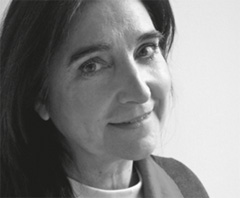|
Eleni Priovolou, Author, 3 July 2003
"The hen that became an egg"
There is no doubt that over the years Sophia Madouvalou has created her own school in the field of children’s literature. Both her tales with educational aims and those which are pure story-telling are a voyage of the mind and the imagination. They are distinguished by their poetic style, their spontaneous humour and the games they play with words and meanings. In this way, the author wins the hearts of her young readers and transforms reading into an entertaining journey filled with wonders. The adventures of Dumbcluck in The Hen That Became an Egg are just such a tale.
One year, but which year? From the start, the reader becomes aware that Madouvalou’s relationship with time is an ‘idea’ rather than something limited within specific chronological boundaries. This adventure may belong in the category of the ‘cosmic egg’, which according to Orphic teaching night left in the gloomy cavern of the lower world to shine amid the chaos. Since that distant age, life has continued to complete its circle through existences ranging from the majestic to the humble. All lives complete a cycle: a cycle of enquiry, thought and, yes, thoughtlessness; of definition, struggle and denial but also of searching for that other half, a mate, so that life may come full circle.
In this work, both space and time are circular, thus forming a seamless unity of opposites from life’s beginning and through its course until that union with the other self that will enable the chicken to become once more an egg.
Clever, amusing, with surreal elements and symbolic characters, the book captures the idea of the wholeness of the world and while anarchic, as is creation itself, it gives birth to a harmonious outcome. And as with every fairy tale worthy of the name it can be read with pleasure by both children and adults.
|




